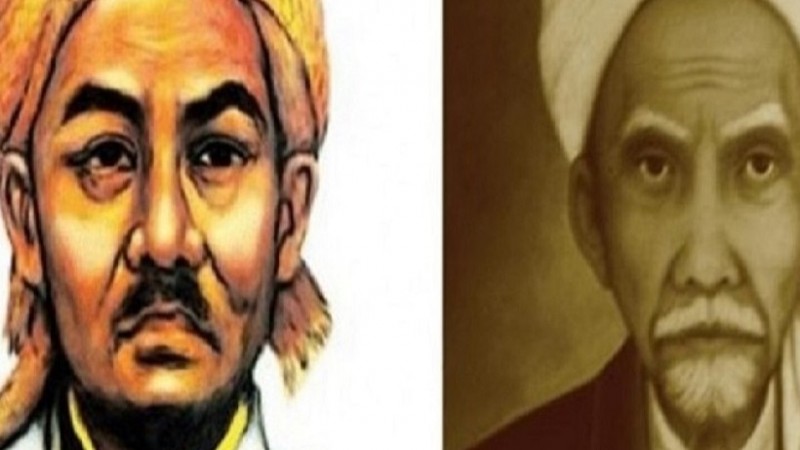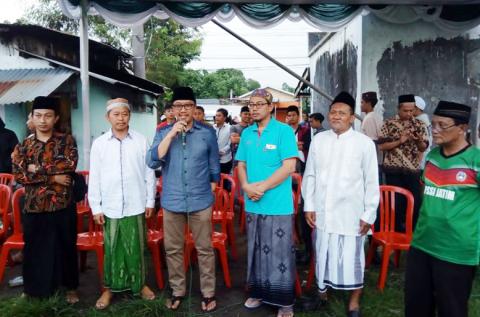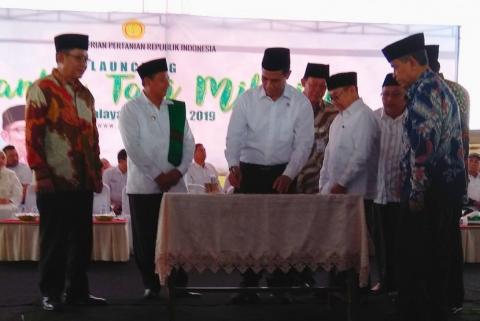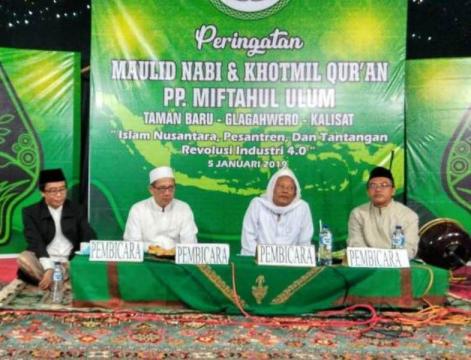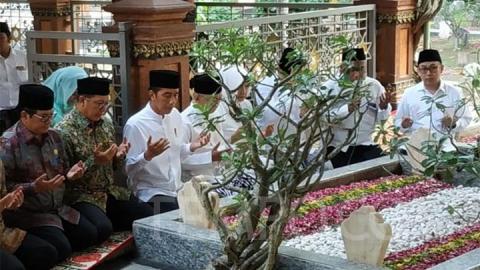Gus Awis explains Sheikh Kholil's important roles
NU Online · Senin, 7 Juni 2021 | 23:43 WIB
Jombang, NU Online
Secretary of the Advisory Board of Nahdlatul Ulama (NU) KH Afifudin Dimyathi popularly known as Gus Awis, explained the three major roles of Sheikh Kholil Bangkalan in the fields of religion, pesantren, and the state.
First, in the field of religion, Shaykh Kholil is a reference for Muslim scholars in the country and even the world and is considered a liaison between Indonesian and Haramain Muslim scholars.
Gus Awis said Sheikh Kholil gave birth to Muslim scholars as well as great leaders in various fields of expertise such as KH Hasyim Asy'ari in hadith, KH Wahab Chasbullah in political and state movements, KH Bisri Syansuri in Islamic jurisprudence (fiqh), and KH Romli in sufism (tasawuf).
"This is the strength of Sheikh Kholil in religious knowledge that could be shared with his students," said Gus Awis on the sidelines of a national seminar entitled "The Legacies of Syaikhona Muhammad Kholil Bangkalan, on Monday (7/6).
He was of the view that Sheikh Kholil was a prominent figure who really cared about the spread of religious knowledge. It could be seen from the works written by Sheikh Kholil in such fields as monotheism, fiqh, nahwu shorof, tajwid, tafsir (qur'anic interpretation) and morality.
In addition, he continued, Sheikh Kholil had been connected to Indonesian and Haramain intellectual networks such as Sheikh Khotib Syambas and to the world of pesantren.
Gus Awis stated that the pesantren networks in the archipelago were mostly related to the Syaikhona Kholil's pesantren. Thanks to Sheikh Kholil, up to now, the pesantren networks have been able to survive in all ages despite facing various challenges.
Gus Awis also revealed the contribution of Sheikh Kholil in developing the pesantren curriculum. "Before 1688 AD, there had been nothing striking about the pesantren curriculum.
However, after the works of Sheikh Nawawi, Shaykh Khotib Syambas and Sheikh Mahfud Termas, Sheikh Kholil brought and taught their works to Indonesia and inspireda new design for the pesantren curriculum," he said.
In gluing pesantren and sufism, Sheikh Kholil had been taken for his baiat / ikrar (oath) to Sheikh Khotib Syambas through the Qadiriyah wa Naqsbandi sufi order and could be accepted in various pesantren throughout the country.
"This indicates that sufism is an acceptable practice," he said, adding that the third role played by Sheikh Kholil in the life of the country gave birth to many students who became fighters and even national heroes.
"We could directly see the Sheikh Kholil's struggle for independence in 1945 because he died in 1925. On this stand, his contribution to the struggle for independence is very clear and visible," said Gus Awis.
The authentic evidence is the handwriting recorded in various manuscripts Hubbul wathan minal iman showing the red thread of the struggle of Sheikh Nawawi Al Bantani in fighting against colonialism in Indonesia, then continued by Syaikhona Kholil.
Syaikhona also greatly influenced his students, including when Soekarno and Hos Tjokroaminoto came to the Sheikh Kholil's residence.
Gus Awis said that at that time in front of Soekarno, Shaykh Kholil said that Soekarno would become a great figure.
"This is a link in the chain of connection between the Shaykh Kholil's efforts to realize independence in this country," he said.
Contributor: Suci Amaliyah
Editor: Sudarto Murtaufiq
Terpopuler
1
Khutbah Jumat: Ramadhan dan Kesempatan yang Tidak Selalu Terulang
2
Innalillah, Ulama Mazhab Syafii asal Suriah Syekh Hasan Hitou Wafat dalam Usia 83 Tahun
3
Khutbah Jumat: Ramadhan, Melatih Sabar, Memperkuat Syukur
4
Kultum Ramadhan: Lebih Baik Sedikit tapi Istiqamah
5
Keluar Mani yang Tidak dan Membatalkan Puasa
6
Khutbah Jumat: Tiga Kebahagiaan Orang Puasa
Terkini
Lihat Semua

